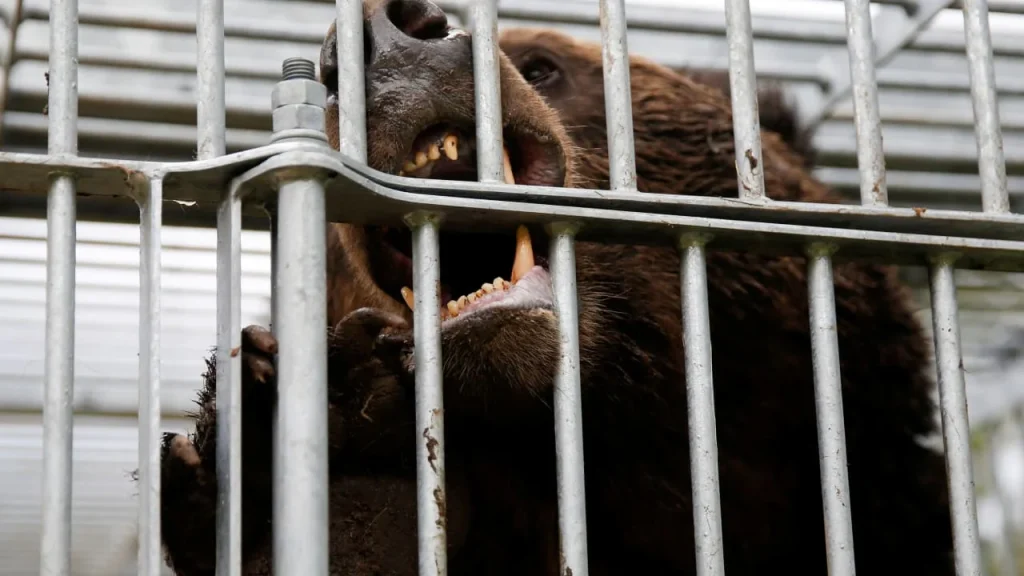Japan’s rugged northern regions received military assistance on Wednesday. Troops were deployed to aid in trapping bears after local authorities reported that communities were struggling to cope with an unprecedented wave of attacks.
The operation commenced in Kazuno, a small town situated among forested mountains. This area has experienced a sharp surge in bear sightings. For weeks, residents had been advised to avoid dense woodlands and stay indoors after nightfall to prevent encounters with bears foraging for food near homes.
Surge in Fatal Attacks
The deployment of the Self-Defense Forces (SDF) provides much-needed relief. “Even if just temporary, the SDF’s help is a big relief,” said Yasuhiro Kitakata, who oversees the town’s bear management department. He noted a concerning change in animal behavior:
“I used to think bears would always run away when they heard noise, but now they actually come toward you. They’re truly frightening animals.”
The national toll from these encounters is grim. The Ministry of the Environment confirmed over 100 bear attacks nationwide since April, resulting in a record 12 fatalities. Two-thirds of those deaths occurred in Akita prefecture, where Kazuno is located, and the neighboring Iwate prefecture.
In Akita, authorities report that bear sightings have jumped six-fold this year, exceeding 8,000 incidents. Attacks are projected to set a new record, prompting the prefectural governor to formally request assistance from the military last week.
Troops Set Traps and Secure Communities
Kazuno Mayor Shinji Sasamoto welcomed the troops. He met approximately 15 soldiers who arrived in army trucks and jeeps, equipped with body armor and detailed maps. “The townspeople feel the danger every day,” Sasamoto stated. “It has affected how people live their lives, forcing them to stop going out or cancel events.”
The troops’ primary role is logistical and operational support: transporting, setting, and inspecting the steel-barred traps . These traps are used to capture bears, which are subsequently euthanized by trained hunters hired to reduce the population.
On a mountain road outside town, local forestry officials demonstrated how to assemble and load the traps onto military trucks for the soldiers.
The white-helmeted troops carried bear spray and were guarded by personnel equipped with shields and long wooden poles.
“I thought maybe something was on fire,” said one local resident, whose radio was blaring to scare off bears. “We all try not to encounter the bears, but we keep hearing about people getting attacked.”
The operation began in Kazuno, a town known for its sweet apples and scenic hot springs, before soldiers head to the cities of Odate and Kitaakita under an agreement scheduled to last until the end of November.
Why Are Bears Moving Into Towns?
The unprecedented surge in human-bear encounters is linked to multiple factors:
- Rising Bear Numbers: An increase in the overall bear population.
- Food Scarcity: Shifts in natural food sources, potentially due to climate changes. Last year saw an abundance of food, leading to many cubs being born, but “This year, the food supply has run out,” noted Kitakata.
- Rural Depopulation: The decline of human presence in rural areas alters the habitat balance.
- Aging Hunters: The cohort of licensed hunters, once relied upon for control, is aging and overwhelmed.
Recent incidents underscore the boldness of the animals. Bears have attacked customers inside a supermarket, assaulted a tourist near a UNESCO World Heritage site, and mauled a worker at a hot spring resort.
Some local schools have temporarily closed after bears were sighted on their grounds. Bear attacks typically peak in October and November as the animals intensely forage before winter hibernation.
The military has been deployed before for wildlife control, including providing aerial surveillance for wild deer hunts a decade ago and culling sea lions in the 1960s to protect fisheries.
Tokyo plans to announce a package of emergency measures this month, including recruiting more licensed hunters and relaxing gun rules for culling bears in urban areas.




















